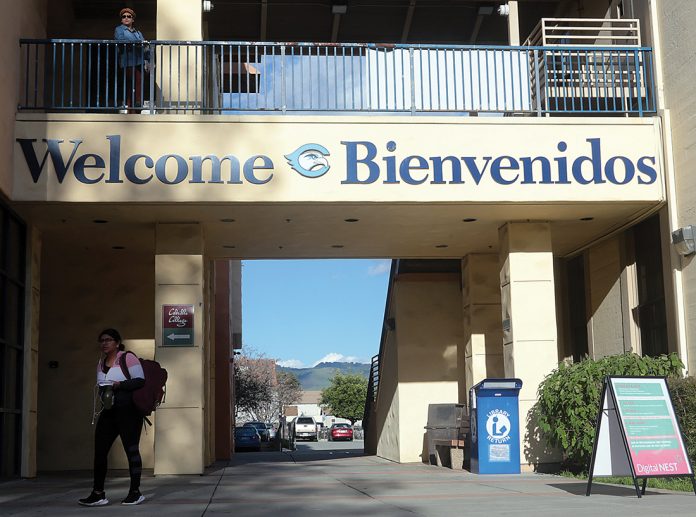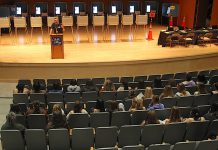APTOS—A month before summer classes begin on June 15, Cabrillo College is seeing a significant increase in enrollment for that semester, even as college officials gird themselves for a recession and for budget cuts caused by the coronavirus pandemic.
In addition, Cabrillo announced Friday that the fall semester will be shifted to an online format as officials seek to stop the spread of Covid-19.
The college moved its spring 2020 semester online when Covid-19 began its spread across the state.
The virus has also scuttled Cabrillo’s traditional graduation ceremony. Instead of walking across the dais at Carl Conelly Stadium on Friday, graduates will watch the college’s first-ever virtual ceremony on their device, said spokeswoman Kristin Fabos.
“We’re trying to make it as much of an actual event as possible, even though it’s virtual,” Fabos said.
Cabrillo Superintendent and President Matt Wetstein said that the increased enrollment can be attributed in part to trends seen during every recession: people facing job loss in an ailing economy are looking to retool their careers, or launch new ones.
The increase could continue into the fall semester, Wetstein said. But he added a 10 percent cut to education statewide—which was announced Thursday by Gov. Gavin Newsom—will make it difficult to offer the necessary number of classes.
“If history plays out in the way it has in past recessions, we will have an increase in demand for enrollment at the very time we have to cut course sections,” he said.
Wetstein said that the impending cuts will affect both staffing and instruction.
“We’re in a real retrenchment period,” he said. “We’re going to have to look at all of our services and identify the very core services that are most important to students.”
The cuts will also affect programs that benefit students.
The Student Equity and Achievement Program—which was created to narrow the achievement gap for students—will get a 15 percent cut, Wetstein said.
The Strong Workforce Program, which helps prepare students for careers, will sustain a 57 percent cut, a move Wetstein called “short-sighted.”
“…They were designed to help us create short-term curriculum approaches for the career workforce, at a time when we’re really going to need short-term certificate programs for career retraining and job retraining in this post-Covid recession,” Wetstein said.
Wetstein said that educators are still hoping for good news in the fall, when the state gets a clearer picture of its tax revenues.
“Everybody needs to recognize that it’s a fluid situation right now,” he said.










